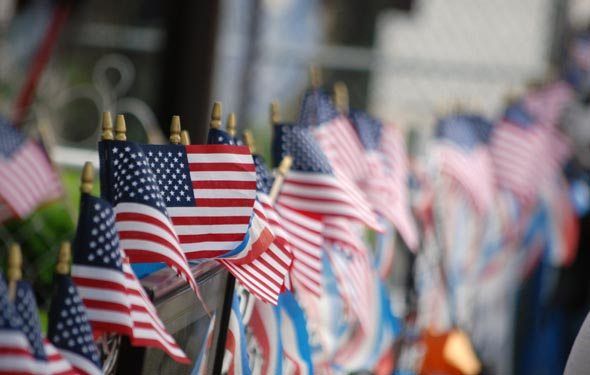Op-Ed: End Of Iraq War Closes Long, Murky Chapter In American History

Neil S. Friedman is a veteran reporter and photographer, and spent the last 15 years as a features editor at Canarsie Courier. Aside from reporting, he did public relations work for brands including Showtime, The Rolling Stones and Michael Jackson. Friedman contributes occasional columns on life, culture and politics in Sheepshead Bay.
These lyrics to “War is Over” by John Lennon and Yoko Ono are particularly timely this Christmas.
So this is Christmas and what have you done,
Another year over, a new one just begun.
A very merry Christmas and a happy New Year
Let’s hope it’s a good one without any fear.
War is over if you want it, war is over now.
There were no celebrations. No parades. No dancing in the streets. No soldiers kissing girls in Times Square. The war in Iraq, AKA Operation Iraqi Freedom, sort of turned out like the month of March — it came in like a lion (Shock and Awe) and went out like a lamb.
While we should be thankful the Iraqi conflict is officially over, we must not forget the thousands of American combat and support troops still engaged in a war in Afghanistan — that one’s for Enduring Freedom — where they face death and danger every day. For them, there’s nothing to cheer. And though the Iraq War may officially be over, American soldiers, diplomats and other civilians remain to face the wrath of certain Iraqi factions.
Even so, the key difference between the end of this war and when the last soldiers returned from Vietnam in 1975 is that these veterans won’t be subjected to the undue scorn or derision heaped on their predecessors unjustly blamed for any connection to the innocent slaughter of unarmed civilians.
The one thing common to the end of this war, which gradually lost national support as it dragged on with no clear resolution, is that a grateful nation reveres those who served, remembers those whose lives were sacrificed and, hopefully, won’t soon forget those who came home injured in mind and body. Consequently, it is imperative that our government guarantees Iraq and Afghanistan veterans, especially those who experienced serious physical and psychological damage, are provided adequate assistance to adjust to postwar life. And, even in this struggling economy, it is crucial that businesses try and accommodate able-bodied veterans so they can make a suitable transition to civilian life.
One question that has been debated for eight years, and one that helps cue a divisive grass-roots controversy, but lately has been on the minds of media pundits, newsmakers, opinion writers and the man on the street is, “Was the war in Iraq worth it?”
How can you measure the significance of something that was an unequivocal blunder from the onset? After all, it started on the whim, or maybe a plan, of a few misguided government officials — with President George W. Bush at the top of that list. In the end, the cost was 4,500 lives of American men and women and an estimated $1 trillion spent on something initiated with faulty, uncorroborated information.
Unlike his predecessor, President Obama did not herald the mission as a victory when the war officially ended on December 15. This president knows we’re not that much closer to the end of the War on Terror than we were on May 1, 2005. On that day, Bush, in a badly chosen attempt to take the edge off a nation still saddened by the horror of the September 11, 2001, terrorist attacks, prematurely declared the end of the war as he stood on the deck of an aircraft carrier in front of a huge banner that proclaimed “Mission Accomplished.”
Putting aside the cost in lives and whether or not freedom and democracy really had much to do with our motives, the money spent on the Iraq War helped devastate our national economy. It also stained America’s image abroad with long-time allies, as well as Arab nations with which we hoped to craft constructive affiliations and business ties. The war also distracted us from vital international and domestic issues, but diverted scads of money to destroy then rebuild Iraq’s roads, bridges and buildings, while this nation’s infrastructure was drastically underfunded or neglected and left to deteriorate.
Despite continuing violence, Iraq is safer today and better off without Saddam Hussein, but it still must reconcile its civil war and create a stable government if the Iraqi people can hope to live in a peaceful, secure and tolerant society.
Only time will tell if we learned any lesson from the botched misadventure where we stayed the course much too long. But, as we welcome home the troops, one in particular stands out: from now on America should develop a viable, rational approach before committing troops to fight and die in a clash that justifies sacrifice in the defense of this country.




